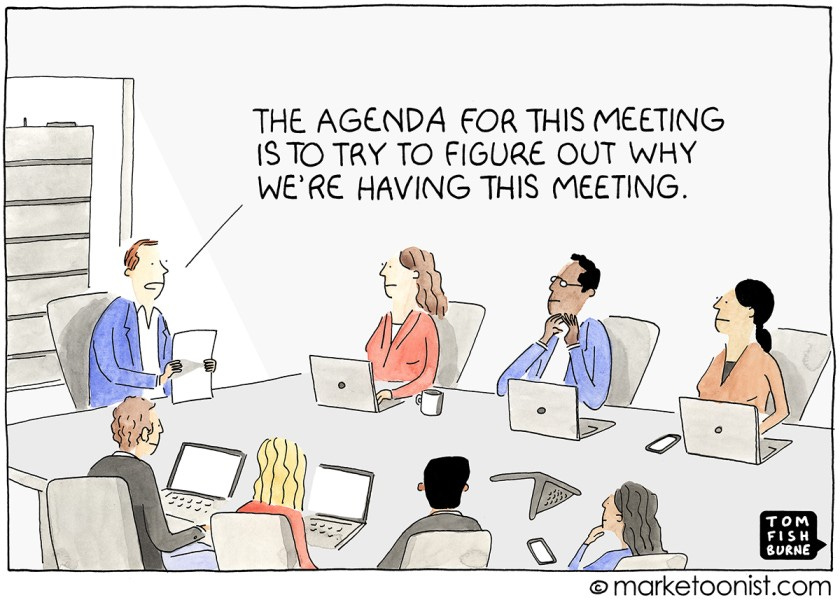Why you need to stop all your 1h long meetings
Have a positive psychological impact, save time and get more work done!
We’re all very well aware of the meeting heavy culture most companies have. While some meetings are necessary, we can all agree that the excessive number of them can be draining and unproductive. In this blog post, we won't delve into the intricacies of Agile and Scrum event timeboxes, although I might sneak in a little nudge to consider their principles.
Instead, our focus will be on addressing the issue of excessive meetings and how we can rectify this common workplace woe.
Time Expands to Fill the Void
The more time you have, the more time you’ll want to use
Have you ever found yourself in a meeting that meanders along, often straying off-topic?
Most of us have been there.
The culprit is often the luxury of an entire hour, which tempts us to leisurely use up the allotted time. But meetings aren't meant for comfort; they serve a purpose.
This is where setting a clear purpose and goal for the meeting becomes paramount. Start by articulating why the meeting is happening and what is expected to be achieved. This aligns everyone on the objectives, making it easy to determine if they can contribute or should exit – a time-saver that translates to tangible value for both individuals and the company.
Literally, put it in the meeting description.
Purpose: The purpose of this goal is x
Goal:
Goal 1
Goal 2
It’s that easy
Bonus Points:
This is also a perfect time for people to figure out if they can add value to the meeting and whether they should leave or stay — saving people time and the company money (which both equal potential customer value)
Defining the purpose at the outset also encourages accountability among participants. If the conversation veers off course, it's easier for anyone to steer it back.
Stay Focused and Snappy
Let's take a page from the Scrum Guide (technically it only has pages if you print it out, but whatever).
The Daily Scrum, for instance, is designed to be a concise 15-minute meeting, ensuring that the team stays focused and on track. If you had a 3 hour slot, you’d happily take all the time in the world. If you had 60 seconds, you're compelled to convey the most vital information efficiently.
This practice of timeboxing also aligns with a fascinating study that suggests that having a full bladder might actually boost cognitive abilities. So perhaps, if you can hold off that bio break a little longer, you might achieve more during that afternoon meeting!
Restructure Your Meetings
Now that we understand the problem, let's consider the solution.
Instead of booking an entire hour for a meeting, try reserving just 45 minutes. This allows a cushion for attendees to take a short break, jot down notes, or simply relax before their next commitment.
For example, schedule your meeting from 9:05 to 9:50 instead of the traditional 9:00 to 10:00. This slight adjustment can make a significant difference.
Additionally, adopt the practice discussed above of clearly defining the purpose and goals of your meetings. Starting with this clarity not only keeps everyone on the same page but also empowers them to decide if they should be part of the discussion.
The Psychological Impact of Shorter Meetings
In the corporate world, time is money, but it's also a finite resource. Excessive hour-long meetings can be mentally draining, leading to what experts call "meeting fatigue." This phenomenon is characterised by reduced attention span, decreased engagement, and increased stress levels among participants.
However, when you trim meetings down to 45 minutes, a remarkable transformation occurs. The condensed timeframe compels everyone to be more focused, attentive, and engaged. With less room for unnecessary digressions, discussions stay on point, making the meeting feel purposeful and efficient.
Furthermore, knowing that there's a brief, dedicated timeframe for the meeting creates a sense of urgency, motivating participants to contribute meaningfully. This heightened engagement has a ripple effect on the overall quality of the meeting and the sense of accomplishment at the end.
In a study conducted by the International Journal of Business Communication, it was found that shorter, more focused meetings led to increased job satisfaction among employees. When people feel that their time is respected, they tend to be more content in their roles. This newfound satisfaction can boost morale, leading to a more positive workplace environment.
In essence, the psychological impact of shorter meetings extends beyond the meeting room. It influences the overall well-being and job satisfaction of your team, creating a virtuous cycle of productivity and contentment.
A small change that can lead to a remarkable shift in your workday.
Now, go and make the most of your time!


